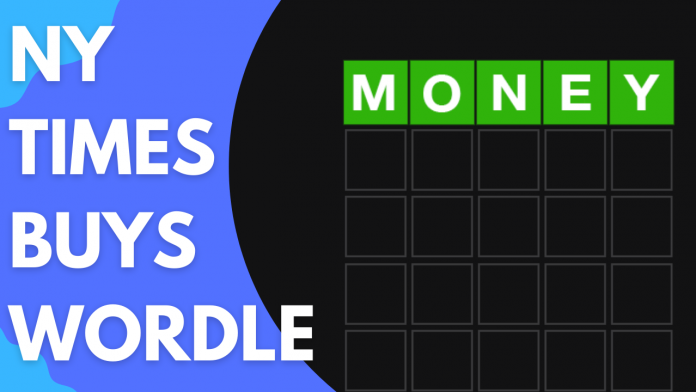The New York Times bought Wordle.
It’s a weird statement, considering few people had even heard of Wordle a few months ago. To put it simply, Wordle is a fun, minimalist web game tasking players with guessing a five-letter word within six guesses.
Both the Times and game creator Josh Wardle announced the acquisition Monday afternoon, with a deal in the “low seven figures.”
Considering the game’s meteoric rise in popularity, such a deal seemed inevitable. And, it makes sense. It fits comfortably alongside the Gray Lady’s distinguished crossword and smaller games like Spelling Bee.
Wordle sports a clean design, and with a limit of one puzzle per day, it’s a fun-sized distraction. Its intuitive sharing system – those green-and-yellow block emojis you’ve surely seen on Twitter – provide a spoiler-free teaser, conversation starter and low-key advertisement all in one.
Those of us who play have been sharing our results on the UzerFriendly Discord.
The game will remain free-to-play, at least for now, according to Wardle. It is unclear if it will remain so in perpetuity. Wardle also said he is working to ensure wins and streaks will be preserved in the transition.
The meteoric rise of Wordle
At best, the game is the perfect topic for a water cooler chat. At worst, it is a new term to add to your Twitter mute list.
But the game’s moment on the internet has also brought about drama.
There are shameless copycats of the game, likely hoping to make a quick buck from those searching for Wordle on the iOS App Store or Google Play.
These ripoffs aren’t to be confused with the countless, creative variations on the game. Lewdle, one such example created in part by Rogue One co-writer Gary Whitta of all people, is the exact same game with a running theme of salacious answers. (NSFW, obviously.)
There are even spoilsports intent on ruining the game. Last week, Twitter banned @wordlinator, a bot designed to send mean Tweets to users sharing their score while spoiling the answer for the next day’s puzzle.
Wordle has spawned countless essays and thinkpieces examining why this particular game managed to blow up. This acquisition likely means the conversation will continue to grow.
That said, there’s no secret sauce to explain Wordle’s success.
Wordle is a free version of a historically popular game, requiring little commitment and packaged with a very clever means of sharing results. It comes at a time when the majority of mobile games aim to hook their players and convince them to spend money.
How long this remains true depends on The New York Times. Locking the game behind a paywall would decimate the existing player base, but it would likely bring in quite a few subscriptions. However, keeping the game free may do the same, drawing players in to try the media company’s other offerings.
Read more
The Most Anticipated Video Games of 2022
UzerFriendly’s Best Video Games of 2021
Angry Weebs Cancelled Netflix’s “Cowboy Bebop”
